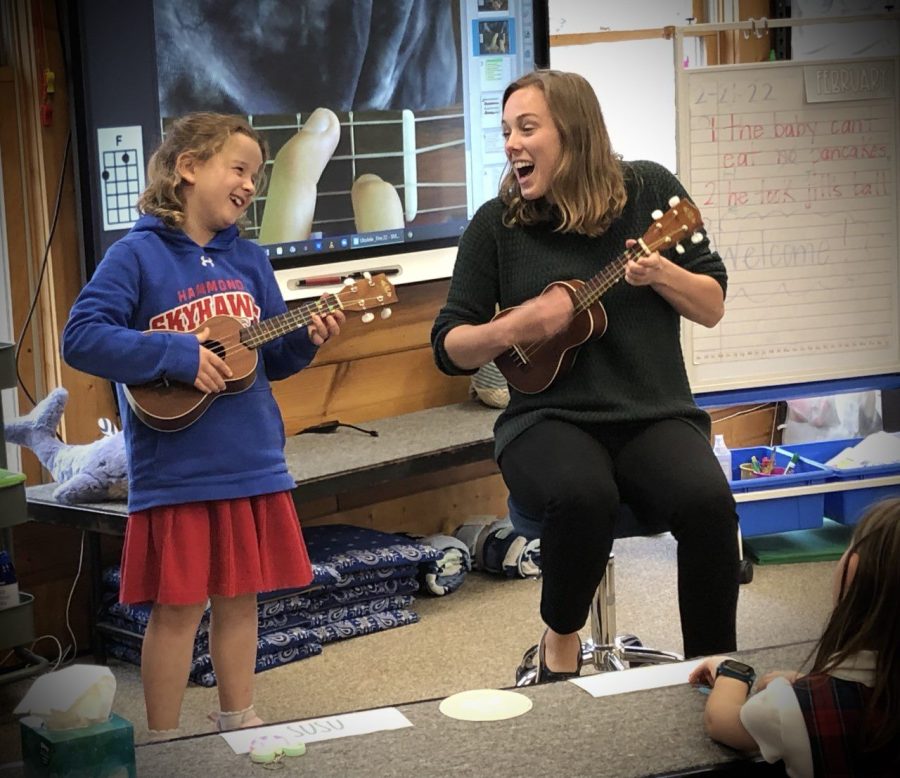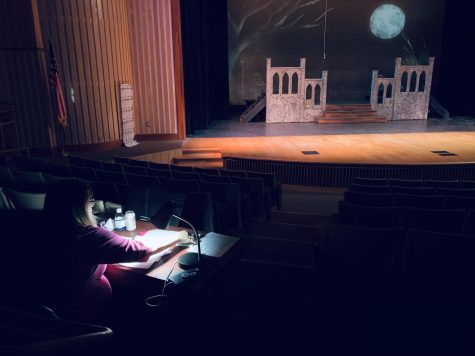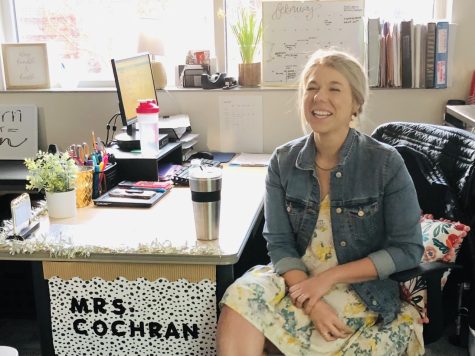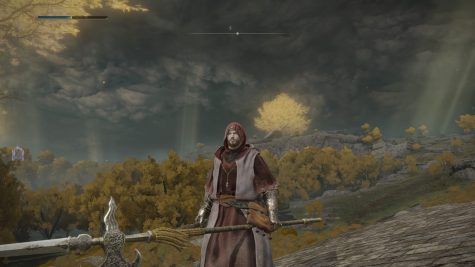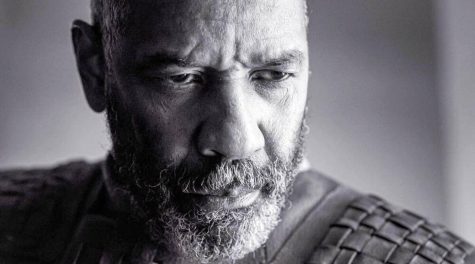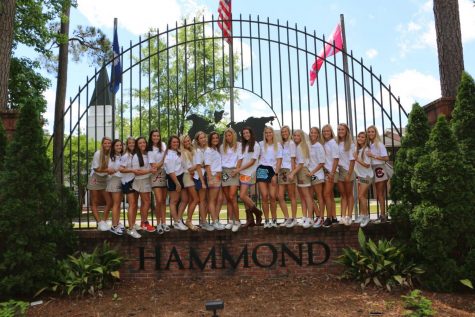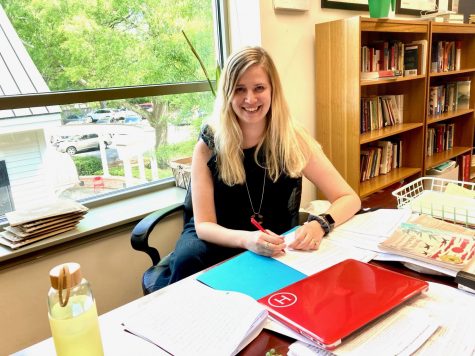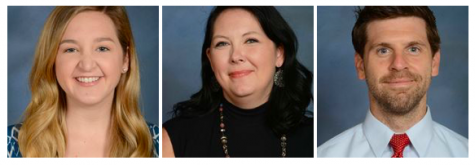Teaching Fellows inject fresh perspectives into Hammond Community
Ms Adams teaches a Lower School music class. She and Susu Barden demonstrate how to play “Clementine” on the ukulele.

Outside on a sunny fall day, you can find a college-aged man sitting among upper school teachers in bright red rocking chairs just outside of Hammond’s Innovation Center. That man is Malik Bennet, a teaching fellow at Hammond School.
The teaching fellows are a group of young alumni fresh out of college that are hired for teaching jobs at Hammond over the duration of a school year. Bennet describes the program as a way for people to “test the waters and see how they like teaching.”
While many have just started to notice the fellows, the program has been functioning since 2020. The fellowship program allows students that do not have a major in education to try teaching. They work under various teachers in different grade levels and subjects. The reason this program started was the push for more substitute teachers due to the effects of Covid-19. While the program has been developing for years, coronavirus gave it the needed push.
The fellows of the 2021-2022 school year include Sarah Adams and Malik Bennet. Both are alumni of Hammond School. Adams, a graduate from Clemson University, has a women’s leadership degree with minors in sociology, religious studies, theater, and English. While attending Hammond, she spent time singing, acting, learning piano, and teaching herself guitar.
On a regular day, she now helps Cherie Herring with her music classes at the lower school in the morning, helps teach 11th grade British Literature with George Simpson, advises a study hall, and then goes back down to the lower school for more classes with Herring. She also proctored the freshman English classes via Zoom over the first few days of school while Ms Crabb recovered from Covid.
On top of this, Adams also assisted Linda Khoury with her production of the play Clue. She says that coming back to Hammond has been wonderfully weird and she enjoys being in a different position than she was just five years ago, when she was still a Hammond senior.
Adams says that the expectations adults put on young people to know exactly what they are doing with their life is unrealistic and stressful. She is grateful to have a chance to come back to Hammond and explore teaching without the pressure of knowing exactly what comes next.
Adams doesn’t know what the future holds, but if she becomes a permanent faculty member at Hammond, she says she hopes to be a music teacher. Herring, whom she describes as “magical,” fuels this interest.
Hammond’s other current teaching fellow is Malik Bennet. Bennet was preparing for graduate school after finishing a bachelor’s degree at Coastal Carolina University when he received an email inviting him to have an interview for this position. Now, he works under Chris Ruehlen in AP Government, Chris Braciszewski in 8th grade Government, and Sara Zumbro in 7th grade
Ancient History.
If Bennet decides to join the Hammond faculty in the future, he hopes to be able to have a discussion-based 11th or 12th grade level elective class teaching social history, as he enjoys educating others about revolutions, strikes, protests, and other historical events involving the entire community of a civilization, not just the upper classes.
Bennet gained his interest in teaching from his mother, but also is an assistant coach to the track and JV football teams, following in the footsteps of Bralyn Bennet, his father.
The fellowship program not only provides younger graduates with the chance to try teaching but also creates a gateway from school to an education position for Hammond alumni. The fellowship gives current students a look into the future, especially because the fellows are closer in age to them than their other teachers.
Adams says that the program lets students know that “it’s okay to not know exactly what you want to do.” A road pre-paved for students unsure of exactly what the future holds or where they belong shows them that they will always have a home at Hammond.
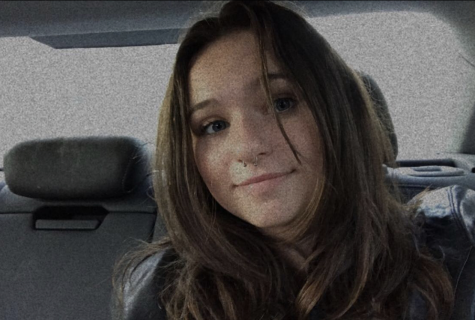
Natalie Engh is a sophomore and writer for the Sentinel. She is also on the equestrian and volleyball teams.
